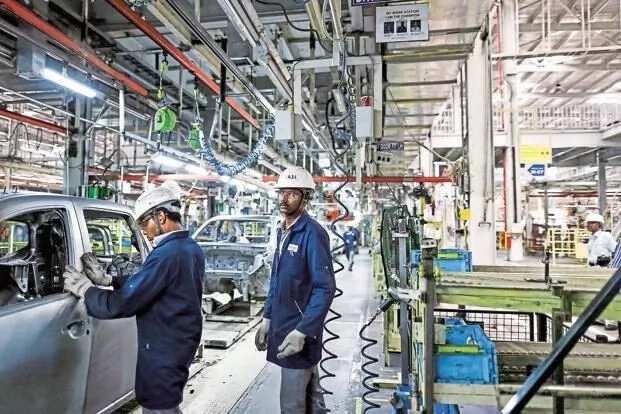Abuja plans N75b loan boost at single digit interest rate
By Jeph Ajobaju, Chief Copy Editor
Abuja plans to support local manufacturers with a N75 billion loan by March 2024 to strengthen the real sector, according to Vice President Kashim Shettima.
He made the announcement when declared open the second National Conference on non-oil export organised in Abuja by the Nigerian Export Promotion Council (NEPC).
Shettima, represented by Jumoke Oduwole, Presidential Adviser on Enabling Business Environment Council and Investment, said N75 billion is voted to support 100,000 startups and Micro Small and Medium Enterprises (MSMEs) at single digit interest rates.
The federal government is also committed to providing infrastructure that will support increased export of non-oil commodities, he said.
“Over the years,” he reiterated, “the nation’s major source had been 80 per cent dependent on oil revenue. It is clear that as a nation, we can’t afford to work on this uncharted path.
“Today, we find ourselves in protracted situations and challenges. All indications point to the fact that we have to prioritise our non-oil export.
“And this administration will give every support to boost non-oil export.”
Shettima pledged government support for made-in-Nigeria products as well as commitment to providing infrastructure to facilitate export trade.
“We will prioritise capacity building for MSMEs, we will invest in human capital development.
“We need to work diligently to utilise opportunity provided by the African Continental Free Trade Area (AfCFTA) by deepening our existing values and expanding our forex earnings.”
Doris Uzoka-Anite, Minister of Industry, Trade and Investment, expressed concern that Nigeria has operated a mono-economy for long, but joy the government’s diversification efforts are yielding positive results.
Her words: “Nigerian non-oil exports grew by almost 40 per cent in 2022, reaching $4.820 billion.
“Semi-processed and manufactured products accounted for almost 37 per cent of these exports, surpassing agriculture’s 30 per cent.
“This is a big step in the right direction. We no longer have the luxury of business as usual when it comes to the business of making sure Nigeria succeeds.
“We can no longer afford to export raw materials cheaply and import finished products at premium prices.
“That train has stopped and will not be starting again. Our focus on exports is locally manufactured value added products that create both business and employment.”
NEPC Chief Executive Officer Ezra Yakusak said the council has significantly increased the contribution of the non-oil sector to the economy.
__________________________________________________________________
Related articles:
MAN cries out, Nigerian manufacturers facing greatest headwinds in their history
Manufacturing cuts 3,567 jobs, piles up N272b unsold stock
Manufacturers express concern over N470b unsold goods
__________________________________________________________________
Nigeria exports 214 products worth N4.8b
For the first time, Yakusak disclosed, the performance of non-oil export grew 39.91 per cent in 2022 to N4.820 billion with about 214 different products exported, ranging from manufactured, semi-processed, solid minerals to raw agricultural produce, per Vanguard.
Nigerian products were exported to 122 countries last year, he disclosed, and urged Abuja to address the strange disease afflicting ginger farms in Kaduna.
“I will not do justice to this address if I do not present the challenges being faced by farmers and exporters of ginger in Nigeria,” Yakusak said.
“It is a known fact that Nigeria’s ginger has been adjudged as the best in the world due to its unique aroma, pungency and high oleorosin content.
“This makes Nigeria one of the largest exporters of ginger in the world. However, the Council received several complaints of the outbreak of a strange disease ravaging ginger farms in Kaduna State.
“So far, about 2,503.9 hectares of farmland have been affected with an estimated loss of over N8 billion.”
Yakusak lamented that apart from the huge financial and economic loss, the disease is affecting the incomes and livelihood of ginger farmers who are mostly operators of MSMEs.
“With the outbreak of the disease, Nigeria’s non-oil export performance may experience a steep decline, except the issue is adequately addressed.
“May I stress that this is not the time for us to accommodate any minute disruption in our foreign exchange inflow.
“With the current state of the naira, every single source of foreign exchange must be carefully and jealously protected.
“It is in this direction that I call on the federal government to declare the ginger fungi infestation as a crop pandemic and fight it with the same viciousness our nation fought Covid-19 pandemic.”














